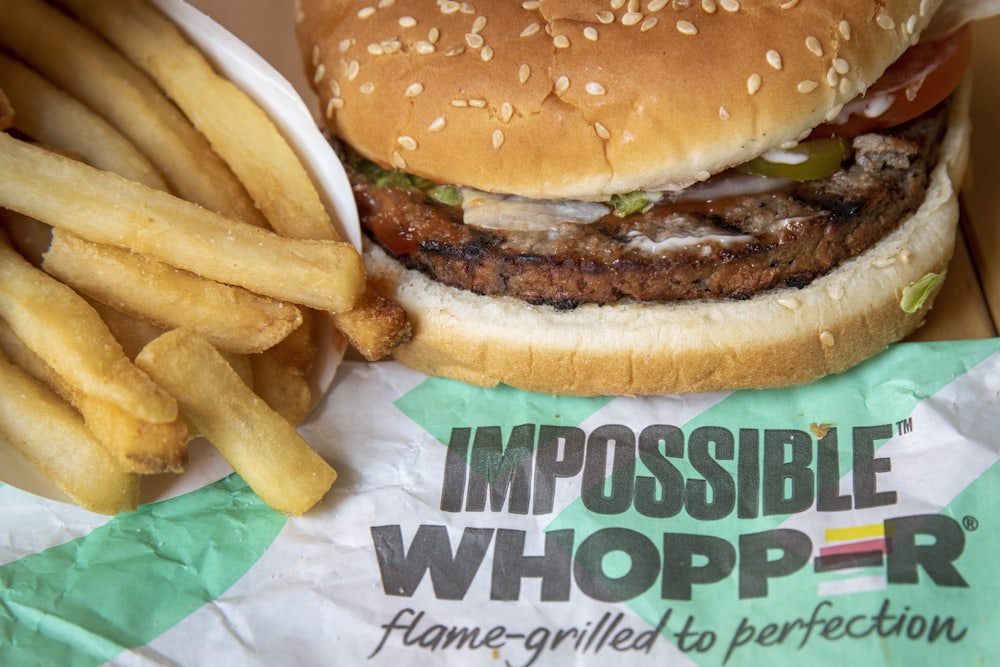“I always wanted to be a vegetarian,” my dad said. I was filming an interview with him for a documentary about food and our relationship to animals. I looked at him incredulously. While he knew I abstained from meat, my dad cooked it daily, often directly on the burner to char it. Encouraged, I asked what he thought about vegans and vegetarians. “Weirdos,” he said instantly. (Daughter included.)
When I screened this documentary at over 100 universities across the country, my father’s pronouncement never failed to elicit a laugh. But behind the laughter lay an important lesson: Because their omnivorous views were represented in the interviews, students later reported, they felt listened to. And because of that, they were willing to listen to alternate messaging in the film in support of not eating meat.
It’s a technique that anti-smoking advocates call motivational interviewing. (And one a friend suggested I try after witnessing my earlier attempts at vegetarian outreach, which involved storming into a KFC in an ill-fitting chicken suit.) Motivational interviewing emphasizes the need to listen to a person to assess their readiness to change and respond accordingly. Rather than force one particular approach on every smoker, the interviewer first asks questions around their motivation.
Along with motivational interviewing, one tool for behavioral change involves breaking big asks up into smaller, more concrete steps. The smallness helps them feel manageable, but the “concrete” part of the equation is important, too. And the interview with my dad illustrated that, as well. After Dad called vegetarians weirdos, I defended them and shared facts about animal cruelty. To soothe me, Dad acquiesced, if only slightly: “Everything should be in moderation.”
Intuitively, moderation makes sense. Yet moderation has an ambiguity problem: One person’s moderation may be another’s indulgence. We need anchors, measurements.
Meatless Mondays proposed just that by helping our planet with one tiny change: Forgo meat one day a week. It was a measurable practice and yet a small one. People, companies, restaurants, and colleges embraced the idea, hyping their meatless offerings. Forty countries around the world adopted it. Rather than asking people to go vegan, it asked people to take their first step. In short, Meatless Mondays was achievable: harm reduction at its best. And the impact of not eating meat or cheese for one day a week in the United States is clear: According to the Environmental Working Group, it’s like taking 7.6 million cars off the road.
As a local organizer of Meatless Mondays in North Carolina, I devoted the better part of a decade to the concept, asking restaurants, colleges, companies, and people to try it. Some asked whether they could pick another day (yes). I organized speakers, collected thousands of signature pledges from people agreeing to try meat-free one day a week, and filled outstretched hands with sizzling samples of plant-based BBQ chicken and pork at festivals, concerts, and other events. Our city of Durham even officially declared April “Meatless Monday Month” in 2016.
This kind of approach can be adapted to other situations. Rather than ask local restaurants to add vegan options permanently during a local vegan chef challenge, we challenged them to add an option to their menus for only a month, then asked customers to vote for the best. But a funny thing happened as a result of this seemingly small, temporary step: Around 80 percent of restaurants actually retained the vegan options permanently once they were celebrated and once the restaurants saw the demand. The annual challenge was then adopted in several cities and counties elsewhere in the nation.
Recently, though, I can’t help but feel frustrated with this progress. I spent a lot of time last month watching the news in Greece, where unprecedented fires brought on by climate change’s 115-degree days incinerated properties and 200,000 acres of forestland. I worried for my family when I saw images of Greeks refusing to evacuate, desperately protecting their homes with tiny buckets of water as the smoky orange sky loomed ominously behind them.
What an understandable response, and a futile one. The more I think about it, I can’t help but worry that the promise of Meatless Mondays is a lot like those buckets—or, as the idiom would have it, a drop in those buckets. Today, we don’t need just a small step. We need more of a leap.
Back in 2003 when the Meatless Mondays initiative was launched by Sid Lerner at Johns Hopkins Center for a Livable Future, the extra six days to continue the status quo felt reasonable. But almost 20 years later, after appallingly little action from policymakers, we’re facing a true emergency. The recent release of the ominous Intergovernmental Panel on Climate Change report from the United Nations warns us: It’s almost too late.
It’s very easy to read this news and simply despair. It’s also easy to wonder how individual actions can possibly amount to anything in the face of governmental inaction.
But in the past year, I’ve drawn inspiration again from a nonclimate movement—not anti-smoking, this time, but anti-racism. Ibram Kendi, in How to Be an Antiracist, argues racial justice is not something we achieve passively from the sidelines, waiting for its delivery. Simply being “not racists” does not suffice: We must be anti-racists. We must act.
Action is the antidote to climate despair, too. Rather than waiting for our nation’s leaders to act—and act they must—there is something each of us can do, and in today’s market it requires little in the way of sacrifice. In addition to putting pressure on politicians, we need to invert the Meatless Mondays model: reserving a day for meat but shifting to a predominantly plant-based diet.
Any hint of meat reduction is often greeted with the same enthusiasm as prohibition, gun control, or mandatory masks. To be sure, Meatless Mondays has a marketing problem: Its very name implies deprivation. Abstinence historically does not work.
But plant-based meal options are proliferating these days: a bountiful addition, not subtraction. For the inversion of Meatless Mondays to be sustainable, media outlets that generally only advise to “eat more vegetables” ought to include plant-based meats as options equal in taste and superior in nutrition. They can point to the numerous familiar meals that can now be made with plant proteins—not just the tofu and lentils earlier generations associate with the term.
Eating a climate-friendly diet six days a week would have an enormous impact both environmentally and ethically. As former Energy Secretary and Nobel Laureate Steven Chu has observed, agriculture and land use outweigh power generation in terms of the emissions produced. Plant-based protein is absurdly more eco-friendly. When Beyond Burger commissioned a study on the matter from the University of Michigan, it found that the alt-protein burger not only generated 90 percent less greenhouse gas but required 46 percent less energy and needed less water and land than would be needed to produce a quarter-pound of beef. And that’s before you get to the impact on the animals themselves. Students at my screenings were surprised by estimates showing a vegetarian saves at least one animal per day.
Instead of Meatless Mondays, I propose “Meat Mondays,” with plant-based meals the six other days. If my outreach has taught me anything, it is that this shift is achievable. The trick is not to preach abstinence but rather to start with one meal we really enjoy and then transform it to plant-based (e.g., tacos with Beyond Meat crumbles, stir-fry with Gardein Strips, or hors d’oeuvres with Miyoko’s cheese) and progress from there. It’s also helpful to encourage friends and family with delicious meals celebrating plant-based creations.
The third of the current batch of United Nations climate reports, due in early 2022, will propose solutions to combating the worst of climate change. The working group may suggest global leaders not only curb power emissions but invest in and subsidize the growing plant-based and cultivated meat industries. But policy change on this will likely take time. Meanwhile, each of us can do something immediately by choosing P6, as I’m starting to think of it: plant-based meals and meats six days a week.
My dad never became a vegetarian. If I could speak with him today, I’d ask him about the fires in his homeland and if he would consider P6. “Well, it’s less weird,” he might have said. By discussing our collective power with those we love, we might just help stave off defeatism. In time, we can build the support needed to radically shift our minds and, then, policy.




